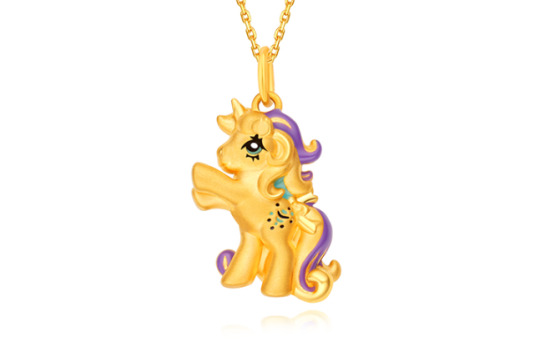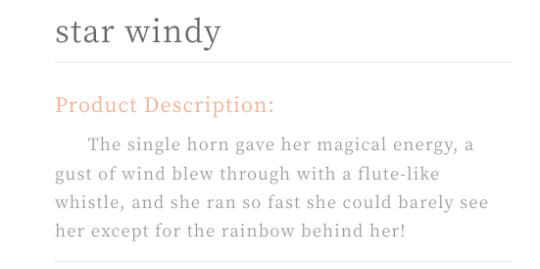#mingr
Photo


Moonstone pendant from Mingr Jewelry
137 notes
·
View notes
Photo

Urged on by Austro Hungary
Urged on by Austro-Hungary, King Milan of Serbia declared war on Bulgaria, on the pretext that the political equilibrium of the Balkan Peninsula had been upset. The authorities in Athens also feared that it would be easier for Bulgaria, in its extended and powerful version, to have its claims on Macedonia – contested by all three states – honored. In November 1885 the Serbian troops violated the Bulgarian western border. But a quick and unexpected turn in the war followed and provided King Milan with a total defeat. As the Bulgarian forces put to flight the Serbian army and headed north-west on Serbian territory Vienna sent its message: either the Bulgarians should stop and go back or they would be at war with Austro-Hungary as well. So in February 1886 the Treaty of Bucharest recognized the unification of the two Bulgarian states.
But Emperor Alexander III refused to support the Unification. To Battenberg he was the worst enemy of Bulgaria. Those who shared the Prince’s sentiments – and came to be known as “Russophobes”- advised that the Bulgarian foreign policy should be orientated towards the Western states. The others, unconditional friends of the liberator Russia, with whom Bulgaria had a common religion Tours Bulgaria, formed the powerful and multitudinous trend of the “Russophiles”.
Strong political tension
The struggle between the two extreme trends quickly created a strong political tension. In the night of August 8lh and in the small hours of August 9lh 1886 a group of pro-Russian officers staged another coup d’etat, dethroned the Prince and sent him to Russia under escort. The reaction of the Russian emperor was swift and in a few days Alexander I was back on the throne but at the end of August he was compelled to abdicate. A three-member Council of Regents was elected, and Stambolov, as the leading figure, did his best so that the Grand National Assembly to reject the new Russian candidate for the Bulgarian throne, Prince Mingreli of Georgia. That put an end to the Russian influence and soon a Bulgarian delegation set off for the European capital cities in search of a new Prince…
0 notes
Photo

Urged on by Austro Hungary
Urged on by Austro-Hungary, King Milan of Serbia declared war on Bulgaria, on the pretext that the political equilibrium of the Balkan Peninsula had been upset. The authorities in Athens also feared that it would be easier for Bulgaria, in its extended and powerful version, to have its claims on Macedonia – contested by all three states – honored. In November 1885 the Serbian troops violated the Bulgarian western border. But a quick and unexpected turn in the war followed and provided King Milan with a total defeat. As the Bulgarian forces put to flight the Serbian army and headed north-west on Serbian territory Vienna sent its message: either the Bulgarians should stop and go back or they would be at war with Austro-Hungary as well. So in February 1886 the Treaty of Bucharest recognized the unification of the two Bulgarian states.
But Emperor Alexander III refused to support the Unification. To Battenberg he was the worst enemy of Bulgaria. Those who shared the Prince’s sentiments – and came to be known as “Russophobes”- advised that the Bulgarian foreign policy should be orientated towards the Western states. The others, unconditional friends of the liberator Russia, with whom Bulgaria had a common religion Tours Bulgaria, formed the powerful and multitudinous trend of the “Russophiles”.
Strong political tension
The struggle between the two extreme trends quickly created a strong political tension. In the night of August 8lh and in the small hours of August 9lh 1886 a group of pro-Russian officers staged another coup d’etat, dethroned the Prince and sent him to Russia under escort. The reaction of the Russian emperor was swift and in a few days Alexander I was back on the throne but at the end of August he was compelled to abdicate. A three-member Council of Regents was elected, and Stambolov, as the leading figure, did his best so that the Grand National Assembly to reject the new Russian candidate for the Bulgarian throne, Prince Mingreli of Georgia. That put an end to the Russian influence and soon a Bulgarian delegation set off for the European capital cities in search of a new Prince…
0 notes
Photo

Urged on by Austro Hungary
Urged on by Austro-Hungary, King Milan of Serbia declared war on Bulgaria, on the pretext that the political equilibrium of the Balkan Peninsula had been upset. The authorities in Athens also feared that it would be easier for Bulgaria, in its extended and powerful version, to have its claims on Macedonia – contested by all three states – honored. In November 1885 the Serbian troops violated the Bulgarian western border. But a quick and unexpected turn in the war followed and provided King Milan with a total defeat. As the Bulgarian forces put to flight the Serbian army and headed north-west on Serbian territory Vienna sent its message: either the Bulgarians should stop and go back or they would be at war with Austro-Hungary as well. So in February 1886 the Treaty of Bucharest recognized the unification of the two Bulgarian states.
But Emperor Alexander III refused to support the Unification. To Battenberg he was the worst enemy of Bulgaria. Those who shared the Prince’s sentiments – and came to be known as “Russophobes”- advised that the Bulgarian foreign policy should be orientated towards the Western states. The others, unconditional friends of the liberator Russia, with whom Bulgaria had a common religion Tours Bulgaria, formed the powerful and multitudinous trend of the “Russophiles”.
Strong political tension
The struggle between the two extreme trends quickly created a strong political tension. In the night of August 8lh and in the small hours of August 9lh 1886 a group of pro-Russian officers staged another coup d’etat, dethroned the Prince and sent him to Russia under escort. The reaction of the Russian emperor was swift and in a few days Alexander I was back on the throne but at the end of August he was compelled to abdicate. A three-member Council of Regents was elected, and Stambolov, as the leading figure, did his best so that the Grand National Assembly to reject the new Russian candidate for the Bulgarian throne, Prince Mingreli of Georgia. That put an end to the Russian influence and soon a Bulgarian delegation set off for the European capital cities in search of a new Prince…
0 notes
Photo

Urged on by Austro Hungary
Urged on by Austro-Hungary, King Milan of Serbia declared war on Bulgaria, on the pretext that the political equilibrium of the Balkan Peninsula had been upset. The authorities in Athens also feared that it would be easier for Bulgaria, in its extended and powerful version, to have its claims on Macedonia – contested by all three states – honored. In November 1885 the Serbian troops violated the Bulgarian western border. But a quick and unexpected turn in the war followed and provided King Milan with a total defeat. As the Bulgarian forces put to flight the Serbian army and headed north-west on Serbian territory Vienna sent its message: either the Bulgarians should stop and go back or they would be at war with Austro-Hungary as well. So in February 1886 the Treaty of Bucharest recognized the unification of the two Bulgarian states.
But Emperor Alexander III refused to support the Unification. To Battenberg he was the worst enemy of Bulgaria. Those who shared the Prince’s sentiments – and came to be known as “Russophobes”- advised that the Bulgarian foreign policy should be orientated towards the Western states. The others, unconditional friends of the liberator Russia, with whom Bulgaria had a common religion Tours Bulgaria, formed the powerful and multitudinous trend of the “Russophiles”.
Strong political tension
The struggle between the two extreme trends quickly created a strong political tension. In the night of August 8lh and in the small hours of August 9lh 1886 a group of pro-Russian officers staged another coup d’etat, dethroned the Prince and sent him to Russia under escort. The reaction of the Russian emperor was swift and in a few days Alexander I was back on the throne but at the end of August he was compelled to abdicate. A three-member Council of Regents was elected, and Stambolov, as the leading figure, did his best so that the Grand National Assembly to reject the new Russian candidate for the Bulgarian throne, Prince Mingreli of Georgia. That put an end to the Russian influence and soon a Bulgarian delegation set off for the European capital cities in search of a new Prince…
0 notes
Photo

Urged on by Austro Hungary
Urged on by Austro-Hungary, King Milan of Serbia declared war on Bulgaria, on the pretext that the political equilibrium of the Balkan Peninsula had been upset. The authorities in Athens also feared that it would be easier for Bulgaria, in its extended and powerful version, to have its claims on Macedonia – contested by all three states – honored. In November 1885 the Serbian troops violated the Bulgarian western border. But a quick and unexpected turn in the war followed and provided King Milan with a total defeat. As the Bulgarian forces put to flight the Serbian army and headed north-west on Serbian territory Vienna sent its message: either the Bulgarians should stop and go back or they would be at war with Austro-Hungary as well. So in February 1886 the Treaty of Bucharest recognized the unification of the two Bulgarian states.
But Emperor Alexander III refused to support the Unification. To Battenberg he was the worst enemy of Bulgaria. Those who shared the Prince’s sentiments – and came to be known as “Russophobes”- advised that the Bulgarian foreign policy should be orientated towards the Western states. The others, unconditional friends of the liberator Russia, with whom Bulgaria had a common religion Tours Bulgaria, formed the powerful and multitudinous trend of the “Russophiles”.
Strong political tension
The struggle between the two extreme trends quickly created a strong political tension. In the night of August 8lh and in the small hours of August 9lh 1886 a group of pro-Russian officers staged another coup d’etat, dethroned the Prince and sent him to Russia under escort. The reaction of the Russian emperor was swift and in a few days Alexander I was back on the throne but at the end of August he was compelled to abdicate. A three-member Council of Regents was elected, and Stambolov, as the leading figure, did his best so that the Grand National Assembly to reject the new Russian candidate for the Bulgarian throne, Prince Mingreli of Georgia. That put an end to the Russian influence and soon a Bulgarian delegation set off for the European capital cities in search of a new Prince…
0 notes
Photo

Urged on by Austro Hungary
Urged on by Austro-Hungary, King Milan of Serbia declared war on Bulgaria, on the pretext that the political equilibrium of the Balkan Peninsula had been upset. The authorities in Athens also feared that it would be easier for Bulgaria, in its extended and powerful version, to have its claims on Macedonia – contested by all three states – honored. In November 1885 the Serbian troops violated the Bulgarian western border. But a quick and unexpected turn in the war followed and provided King Milan with a total defeat. As the Bulgarian forces put to flight the Serbian army and headed north-west on Serbian territory Vienna sent its message: either the Bulgarians should stop and go back or they would be at war with Austro-Hungary as well. So in February 1886 the Treaty of Bucharest recognized the unification of the two Bulgarian states.
But Emperor Alexander III refused to support the Unification. To Battenberg he was the worst enemy of Bulgaria. Those who shared the Prince’s sentiments – and came to be known as “Russophobes”- advised that the Bulgarian foreign policy should be orientated towards the Western states. The others, unconditional friends of the liberator Russia, with whom Bulgaria had a common religion Tours Bulgaria, formed the powerful and multitudinous trend of the “Russophiles”.
Strong political tension
The struggle between the two extreme trends quickly created a strong political tension. In the night of August 8lh and in the small hours of August 9lh 1886 a group of pro-Russian officers staged another coup d’etat, dethroned the Prince and sent him to Russia under escort. The reaction of the Russian emperor was swift and in a few days Alexander I was back on the throne but at the end of August he was compelled to abdicate. A three-member Council of Regents was elected, and Stambolov, as the leading figure, did his best so that the Grand National Assembly to reject the new Russian candidate for the Bulgarian throne, Prince Mingreli of Georgia. That put an end to the Russian influence and soon a Bulgarian delegation set off for the European capital cities in search of a new Prince…
0 notes
Photo

Urged on by Austro Hungary
Urged on by Austro-Hungary, King Milan of Serbia declared war on Bulgaria, on the pretext that the political equilibrium of the Balkan Peninsula had been upset. The authorities in Athens also feared that it would be easier for Bulgaria, in its extended and powerful version, to have its claims on Macedonia – contested by all three states – honored. In November 1885 the Serbian troops violated the Bulgarian western border. But a quick and unexpected turn in the war followed and provided King Milan with a total defeat. As the Bulgarian forces put to flight the Serbian army and headed north-west on Serbian territory Vienna sent its message: either the Bulgarians should stop and go back or they would be at war with Austro-Hungary as well. So in February 1886 the Treaty of Bucharest recognized the unification of the two Bulgarian states.
But Emperor Alexander III refused to support the Unification. To Battenberg he was the worst enemy of Bulgaria. Those who shared the Prince’s sentiments – and came to be known as “Russophobes”- advised that the Bulgarian foreign policy should be orientated towards the Western states. The others, unconditional friends of the liberator Russia, with whom Bulgaria had a common religion Tours Bulgaria, formed the powerful and multitudinous trend of the “Russophiles”.
Strong political tension
The struggle between the two extreme trends quickly created a strong political tension. In the night of August 8lh and in the small hours of August 9lh 1886 a group of pro-Russian officers staged another coup d’etat, dethroned the Prince and sent him to Russia under escort. The reaction of the Russian emperor was swift and in a few days Alexander I was back on the throne but at the end of August he was compelled to abdicate. A three-member Council of Regents was elected, and Stambolov, as the leading figure, did his best so that the Grand National Assembly to reject the new Russian candidate for the Bulgarian throne, Prince Mingreli of Georgia. That put an end to the Russian influence and soon a Bulgarian delegation set off for the European capital cities in search of a new Prince…
0 notes
Photo

Urged on by Austro Hungary
Urged on by Austro-Hungary, King Milan of Serbia declared war on Bulgaria, on the pretext that the political equilibrium of the Balkan Peninsula had been upset. The authorities in Athens also feared that it would be easier for Bulgaria, in its extended and powerful version, to have its claims on Macedonia – contested by all three states – honored. In November 1885 the Serbian troops violated the Bulgarian western border. But a quick and unexpected turn in the war followed and provided King Milan with a total defeat. As the Bulgarian forces put to flight the Serbian army and headed north-west on Serbian territory Vienna sent its message: either the Bulgarians should stop and go back or they would be at war with Austro-Hungary as well. So in February 1886 the Treaty of Bucharest recognized the unification of the two Bulgarian states.
But Emperor Alexander III refused to support the Unification. To Battenberg he was the worst enemy of Bulgaria. Those who shared the Prince’s sentiments – and came to be known as “Russophobes”- advised that the Bulgarian foreign policy should be orientated towards the Western states. The others, unconditional friends of the liberator Russia, with whom Bulgaria had a common religion Tours Bulgaria, formed the powerful and multitudinous trend of the “Russophiles”.
Strong political tension
The struggle between the two extreme trends quickly created a strong political tension. In the night of August 8lh and in the small hours of August 9lh 1886 a group of pro-Russian officers staged another coup d’etat, dethroned the Prince and sent him to Russia under escort. The reaction of the Russian emperor was swift and in a few days Alexander I was back on the throne but at the end of August he was compelled to abdicate. A three-member Council of Regents was elected, and Stambolov, as the leading figure, did his best so that the Grand National Assembly to reject the new Russian candidate for the Bulgarian throne, Prince Mingreli of Georgia. That put an end to the Russian influence and soon a Bulgarian delegation set off for the European capital cities in search of a new Prince…
0 notes
Photo

Urged on by Austro Hungary
Urged on by Austro-Hungary, King Milan of Serbia declared war on Bulgaria, on the pretext that the political equilibrium of the Balkan Peninsula had been upset. The authorities in Athens also feared that it would be easier for Bulgaria, in its extended and powerful version, to have its claims on Macedonia – contested by all three states – honored. In November 1885 the Serbian troops violated the Bulgarian western border. But a quick and unexpected turn in the war followed and provided King Milan with a total defeat. As the Bulgarian forces put to flight the Serbian army and headed north-west on Serbian territory Vienna sent its message: either the Bulgarians should stop and go back or they would be at war with Austro-Hungary as well. So in February 1886 the Treaty of Bucharest recognized the unification of the two Bulgarian states.
But Emperor Alexander III refused to support the Unification. To Battenberg he was the worst enemy of Bulgaria. Those who shared the Prince’s sentiments – and came to be known as “Russophobes”- advised that the Bulgarian foreign policy should be orientated towards the Western states. The others, unconditional friends of the liberator Russia, with whom Bulgaria had a common religion Tours Bulgaria, formed the powerful and multitudinous trend of the “Russophiles”.
Strong political tension
The struggle between the two extreme trends quickly created a strong political tension. In the night of August 8lh and in the small hours of August 9lh 1886 a group of pro-Russian officers staged another coup d’etat, dethroned the Prince and sent him to Russia under escort. The reaction of the Russian emperor was swift and in a few days Alexander I was back on the throne but at the end of August he was compelled to abdicate. A three-member Council of Regents was elected, and Stambolov, as the leading figure, did his best so that the Grand National Assembly to reject the new Russian candidate for the Bulgarian throne, Prince Mingreli of Georgia. That put an end to the Russian influence and soon a Bulgarian delegation set off for the European capital cities in search of a new Prince…
0 notes
Photo

Urged on by Austro Hungary
Urged on by Austro-Hungary, King Milan of Serbia declared war on Bulgaria, on the pretext that the political equilibrium of the Balkan Peninsula had been upset. The authorities in Athens also feared that it would be easier for Bulgaria, in its extended and powerful version, to have its claims on Macedonia – contested by all three states – honored. In November 1885 the Serbian troops violated the Bulgarian western border. But a quick and unexpected turn in the war followed and provided King Milan with a total defeat. As the Bulgarian forces put to flight the Serbian army and headed north-west on Serbian territory Vienna sent its message: either the Bulgarians should stop and go back or they would be at war with Austro-Hungary as well. So in February 1886 the Treaty of Bucharest recognized the unification of the two Bulgarian states.
But Emperor Alexander III refused to support the Unification. To Battenberg he was the worst enemy of Bulgaria. Those who shared the Prince’s sentiments – and came to be known as “Russophobes”- advised that the Bulgarian foreign policy should be orientated towards the Western states. The others, unconditional friends of the liberator Russia, with whom Bulgaria had a common religion Tours Bulgaria, formed the powerful and multitudinous trend of the “Russophiles”.
Strong political tension
The struggle between the two extreme trends quickly created a strong political tension. In the night of August 8lh and in the small hours of August 9lh 1886 a group of pro-Russian officers staged another coup d’etat, dethroned the Prince and sent him to Russia under escort. The reaction of the Russian emperor was swift and in a few days Alexander I was back on the throne but at the end of August he was compelled to abdicate. A three-member Council of Regents was elected, and Stambolov, as the leading figure, did his best so that the Grand National Assembly to reject the new Russian candidate for the Bulgarian throne, Prince Mingreli of Georgia. That put an end to the Russian influence and soon a Bulgarian delegation set off for the European capital cities in search of a new Prince…
0 notes
Photo


Windy pendant from Mingr Jewelry
73 notes
·
View notes
Text
Ðusyþ word of the day #332
hyllnymemeif (first ray of light)
/ˈhəɬ.nə.me.mei̯f/ [ˈhəɮ̱.nə.me.mei̯v]* ⟨xą̂shngįnąąwį⟩
*Standard dialect
Etymology
From Old Ðusyþ xą̂shngįnąąwį "first ray of light", from xą̂shngįną (to open, to release) + ąwį (flat wide thing)
Definition
n.
(literal) daybreak; the first ray of light from the sun
xöþhyllnymemeif, lletreistsiklitx.
LOC-daybreak sing-AUG-chicken-PL
At daybreak, the chickens sing loudly.
2. (metaphorical, in Dwarven faiths) the beginning of difficulty, the beginning of trouble
"ei hyllnymemeif lyngreisim,
Arkun, eknyxnyllysei."
if beginning_of_difficult come-AUG-SUBJ
God COP-shield-IMP
If the first ray of light comes quickly,
O God, be my arrow-shield.
- Hymn to Einshâ, Altyslin Nymist
3. (metaphorical, in Vavragat faiths) the arrival of Santun, the arrival and blessing of God
edu lynghyllnymemeif,
Santun Ödsn mingr.
1.ORD come-daybreak
Santun Great smile
At first coming of daybreak,
Santun, Great God, smiled.
1 note
·
View note
Text
places in cumbria + tolkienesque forenames
Adûn Aikthor Aington Aite Aittbragon Aland Aleam Ales Aletherton Alfe Allhale Alver Amereekil Amin Amûl Andal Andsby Annar Anne Arandrape Arapcatan Ardales Arghton Arizeldock Arle Arls Arrepoth Arron Arwettlead Arwighhear Atir Aveg Avenby Avir Azebergo Azele Bamdír Banaithil Bandil Bankgaite Banákhigny Bark Barlantond Barros Bartle Barver Beck Beckerer Beckfor Becleck Been Belventh Beybeonby Bifton Bigg Blad Blagort Blanwicke Blanwë Blanáind Blarocke Bleadock Bleckshne Blehead Blevertown Bley Blia Boftonron Bofurne Bonril Borees Boterimron Both Boughambur Bown Brabeck Brad Braglór Brah Brahielion Brahiglank Bran Bras Bravide Brickele Brighawks Bril Brin Briny Brionby Brionds Brizelme Brodbor Broor Brop Brot Broth Bríancate Burna Burron Burstar Buttârin Bëorot Cald Caldalen Caldovegor Call Callside Calsir Calthôr Cand Carcown Cards Carkbrin Carvell Caside Cast Castana Castar Castned Caston Cataran Catbruf Catur Caughlon Caughorn Ceforl Celsandoc Cempton Chuor Cill Clia Clirton Clittankh Coth Cothwaite Cougher Coughtor Cowichor Crey Crodleth Crom Crosey Cross Crotte Crouse Cumark Cumby Cume Cumon Cundiryate Cuns Dador Dalebeymon Dalembotte Dalia Dalvaldale Dandion Deessock Dorby Dorn Drór Duilth Dwick Dyken Dyker Dáingo Déald Déother Egton Eighscale Eland Eldalesby Elindingg Ellot Elme Elsty Elvencoash Elynensby Embfoxen Erpende Esforrow Essesoill Eärn Eärntoder Farey Farlass Fass Fauhúri Fencot Fier Fimundrór Finahton Findill Finzillot Fire Flinger Flock Floorwer Flowmange Foor Foos Foosend Fough Fria Fridgelin Frielrion Frin Fréale Fuilzôr Fundirill Fílion Gaihir Garversad Gath Gatingor Gavenpar Gawcelm Ghtonmir Gill Gimickbarn Glad Glife Glór Golbredhil Golg Graite Grakalank Greadaláf Greadowite Greend Greendmor Gregrene Gregtonby Gren Grenby Grenc Greth Gretock Griartir Gridgell Groughton Gund Hacarlack Halape Halas Halde Haldor Haldë Halehaphow Halenby Hall Hamen Hampthay Hank Harale Harch Harkby Harooston Hawbron Haws Haysoros Hazaglan Heass Heata Held Herdalan Heston Higg Highrock Highton Hightow Higton Higtonel Hilfpelin Hill Hillank Hillaulpe Hindinaith Hines Hing Hinkratton Hirk Holl Horby Horiën Horoode Horrom Hosewhill Hund Hurn Hurron Hutby Huth Huttle Iddaglor Illencock Imelyë Imrog Indor Inyath Ireenton Iselma Ishgath Jerton Kelen Kell Kelriën Kelwata Kerds Khânby Kill Kinds Kine Kinsill Kirils Kílin Lanby Lasgil Lemorpapen Leth Lette Lifton Limouglúk Linedale Loberpend Lornros Lote Luillbrape Lumands Lunston Lúvaites Maban Mack Maglifton Mandoth Marlsead Marsild Maver Mendóm Millob Mindiridge Mingre Miteskenby Mootte Mírda Mírdalet Neadalf Nenherby Nenri Newain Newald Newhill Newlancot Nólift Nómills Oddalette Oroth Oroutton Orpenton Ortopmirk Ougatesker Ouside Oxfiel Oxfimë Palemog Palle Pebyhighâl Pencaur Peroutte Poth Ramlimband Rosby Rumockfote Rumon Ryll Rytow Sadûn Sale Salvelmë Scand Scas Scel Sedbor Selwë Senthil Shal Sidril Skidge Skil Slack Snode Staridge Stnuil Stok Ston Strines Taiten Thald Theagor Thwaiada Thwalven Thwankry Thwaton Tiën Tonbrighby Tringon Tron Tuld Ulby Uldetgatin Ulfelsty Ungtoron Unstarain Uplerdack Valomboor Vand Varasdalkh Vingdalite Waby Wain Waind Waite Waites Waith Waithor Wardam Wastne Watch Whill Whingh Wich Wigh Winy Witengor Woor Wooses Worofton Wytonby Yatable Zimroull Éoddivor Éode Éodeór
0 notes
Text
Platinum Wedding Ring Market Share, Size, Growth, Segment & Outlook From 2022-2028
The Platinum Wedding Ring Market will change significantly from the previous year. Over the next six years, will register a CAGR in terms of revenue, and the global market size will reach USD in millions by 2028.
The global Platinum Wedding Ring market report provides a thorough examination of the industry, including reliable projections and analysis at the global, regional, and national levels. It gives a full value chain analysis as well as a comprehensive perspective of the global Platinum Wedding Ring market. The research provides a detailed segmentation analysis of the market, highlighting important product and application categories. Actual market numbers for the size of the global Platinum Wedding Ring market in terms of value and volume are supplied to readers for the predicted period.
The research provides an in-depth look at how the market works and develops on a local and global scale. This analytical report compiles a comprehensive range of data on market statistics from the last several years, as well as projections for the future. It provides customers with in-depth analyses and well-organized explanations of current market trends, allowing them to make informed decisions. It includes all of the key participants in the global Platinum Wedding Ring market who are actively engaged and competing. It includes a number of corporations, manufacturers, suppliers, and other organizations.
The Major Players In The Platinum Wedding Ring Market Include:
· Cartier
· Tiffany
· Laofengxiang
· Chow Tai Fook
· Chow Sang Sang
· Lukfook
· Mingr
· LVMH
· Chowtaiseng
· Harry Winston
· CHJ
· I DO
· CHJD
· Yuyuan
· David?Yurman
· TSL
Market has segmented the global Platinum Wedding Ring market on the basis of type, application, and region:
The Platinum Wedding Ring market is segmented by type and application. Growth between segments over the period 2022-2028 provides accurate calculations and forecasts of revenue by type and application in terms of volume and value. This analysis can help you expand your business by targeting eligible niches.
By Type:
· Finished Wedding Ring
· Semi-finished Wedding Ring
· Customized Wedding Ring
By Application:
· Engagement
· Wedding
Download a Free Sample Copy of the Market Report: -
https://introspectivemarketresearch.com/request/3318
By Regional Outlook:
· North America (U.S., Canada, Mexico)
Europe (Germany, U.K., France, Italy, Russia, Spain, Rest of Europe)
Asia-Pacific (China, India, Japan, Southeast Asia, Rest of APAC)
Middle East & Africa (GCC Countries, South Africa, Rest of MEA)
South America (Brazil, Argentina, Rest of South America)
Covid-19 Impact and Recovery Analysis on Industry:
The COVID-19 pandemic has had devastating effects on several industry verticals globally. To constrain the number of cases and slow the coronavirus spread, various public health guidelines were implemented in different countries across the globe. COVID-19 protocols ranging from declaring national emergency states, enforcing stay-at-home orders, closing nonessential business operations and schools, banning public gatherings, imposing curfews, distributing digital passes, and allowing police to restrict citizen movements within a country, as well as closing international borders. With the growing vaccination rate, governments are uplifting the protocols to give a boost to the stagnant economy. Like other industries, Platinum Wedding Ring Market have experienced slowdown the growth, however market is expected bounce back as restrictions are being lifted up by governments across the globe.
If You Have Any Query of Platinum Wedding Ring Market Report, Visit.@
https://introspectivemarketresearch.com/inquiry/3318
Report covered the major key points:
Explore key findings of the overall market
Strategic breakdown of market dynamics (Drivers, Restraints, Opportunities, Challenges)
Market Segmentation caters to a thorough assessment of key segments with their market estimations
Geographical Analysis: Assessments of the mentioned regions and country-level segments with their market share
Key analytics: Porter's Five Forces Analysis, Vendor Landscape, Opportunity Matrix, Key Buying Criteria, etc.
Competitive landscape is the theoretical explanation of the key companies based on factors, market share, etc.
Company profiling: A detailed company overview, product/services offered, SCOT analysis, and recent strategic developments
0 notes
Text
💮 Album Thaï BL Icons 💮 Saint Sup Red passion ♥️♥️

#boys love icons#saint suppapong udomkaewkanjana#saint sup#fashion content#mingr#boys love#why ru the series#lbc s1#zeesaint#saintzee#red passion
13 notes
·
View notes